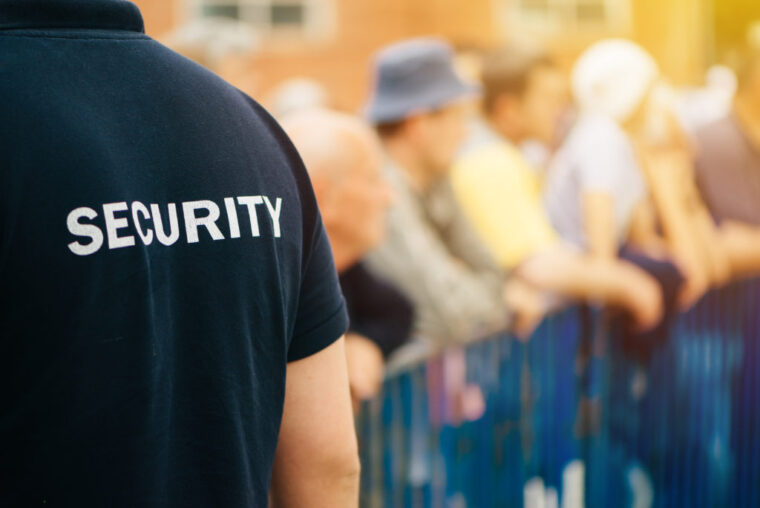When planning a gathering, any sane person will prioritize safety and security. However, emergencies and problems do not send a signal before arising. They can happen at any place and at any time. Significant events such as concerts and award shows are prone to crises like theft, violence, and terrorism. For example, we know what happened at the Ariana Grande concert in Manchester. It becomes vital to have a robust event security plan and team to avoid such fatal consequences.
Preparing for the unexpected is essential so such issues can be dodged easily if they arise. Event security should be present in every situation, whether it is a sporting event, a family gathering, a rally, or a concert. Otherwise, it puts the attendees at significant risk, and people may not even attend as they would not feel safe.
The Most Salient Step In Preparing For Crisis Management In Gatherings

Event security teams follow a protocol named “risk assessment.” This is considered the most vital step in the event security management process. During this scrutinization process, the crew checks the whole pre-planned security scheme and any potential dangers that might come up.
Potential risks may include terrorist attacks, natural disasters, crowd related issues which are mainly caused due to mismanagement. The team scans the whole arena for any places of vulnerability that might even remotely threaten the guests.
After identifying and recognizing every modification the place needs and all the event’s shortcomings, a proper crisis management plan is set. Everyone on the crew and even the guests must abide by the rules specified in that plan.
A Small Insight About The Crisis Management Plan
The crisis management plan should include communication channels between event employees, security guards, and emergency responders. Protocols for evacuation, sheltering in place, and medical assistance should also be established. The strategy should also cover how to deal with the media and communicate with participants and their families.
Is Training Important For Efficient Crisis Management?

The security personnel appointed to be at the venue undergo rigorous training before getting the authorization and certification. They are given access to necessary equipment and supplies and are required to keep them handy to deal with any problems and work toward crisis management.
They should be trained in de-escalation techniques to prevent incidents from escalating into a full-blown crisis. Proper knowledge about emergency response procedures is vital to tackle risks and dangers.
How Is Law Enforcement Relevant With Event Security?
Law enforcement is necessary for every event, as many would not be aware of it. Law professionals are experienced and are recognized for giving valuable and meaningful insights into potential threats. They can also assist in coordinating a response if an emergency occurs.
Do you know creating a strong and stable working relationship with law enforcement organizations is essential? This ensures that everything is done effortlessly and no quarrels arise during mutual agreements.
The Need For Technology In Event Management
It is essential to have skilled security personnel. Yet juggling everything is demanding. For both small and large crowds, it is vital to keep a close eye on every area of the stadium. Naturally, the most popular and reliable tool is a CCTV camera. The use of drones has gained a lot of popularity recently. Their advanced technology also aids in masking more extensive occurrences. Since drones provide a bird’s-eye view of the entire arena, they are practical for high-budget events.
There are various mobile apps, and of course, there is social media that helps in effective communication throughout the program and also lets the guards, as well as the attendees, know about the current situation of the gathering and if there is some danger which needs to be taken care of. If the guests know everything, handling the issue becomes much more accessible.
The Event Security Should Know Everything About Crowd Control

It is always advisable to reduce the number of guests invited as much as possible. But there are situations where this is out of the hands of the host. If the crowd is going to be a big one, the venue should have ample open space. This reduces the chances of jostling and people getting hurt.
The bigger the crowd, the more difficult it becomes to manage it. This is where crowd control comes into play. The professionals have been trained to understand the condition of the crowd and work accordingly. The team should be able to control people’s flow and be competent enough to handle emergencies even in clustered areas.
Clearing up places where many people have gathered and regulating the crowd also comes under crowd control. If the people are too rowdy, bouncers can also take action against them, and they might be removed from the concert or the event.
Conducting Regular Reviews And Also Updating The Plan Every Once In A While
As generations and situations change, so do the threats, potential dangers, and risk factors. In this situation, it becomes vital that the security plans are also varied, altered, and modified. If the rules and regulations are updated regularly, it helps in being tactful and having the qualities to solve confusing problems.
This includes modifying evacuation routes, updating emergency responders’ contact information, and ensuring security personnel know the most recent emergency response protocols.
All of this is kept in mind by the team while working out the plan for the event. Even after each program, they determine which things to be consistent with and which aspects need improvement. Every plan will have flaws. But having the capabilities to work on them and move towards improvement becomes the real deal.
Conclusion
In conclusion, anticipating the unforeseeable is essential for crisis management in event security. A good plan must include the following:
- Performing a thorough risk assessment.
- Creating a complete crisis management plan.
- Providing security staff with resources and training.
Technology use, crowd control strategies, and involving local law enforcement and emergency services can all be crucial to crisis management. The system must also be reviewed and updated regularly to remain relevant and valuable.
By adopting these precautions, event planners can lessen the possibility of crises while also assisting in ensuring the safety and security of participants.
